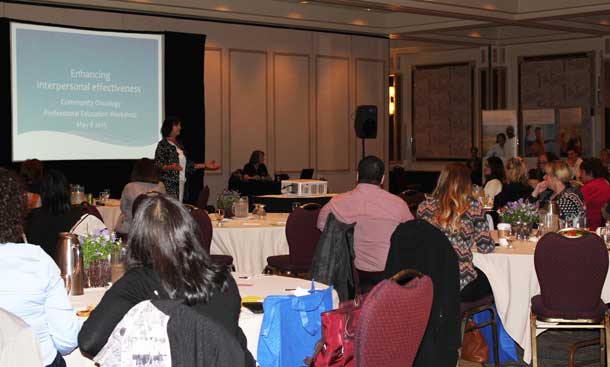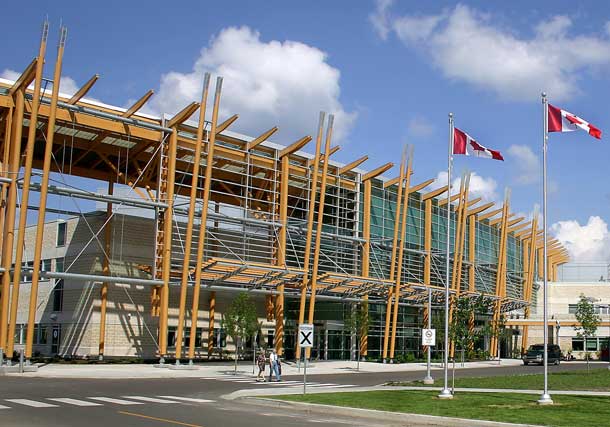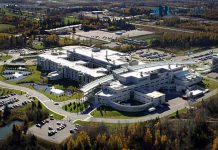

This year, the annual Community Oncology Professional Education (COPE) Workshop, held on May 7th and 8th at the Valhalla Inn with cancer care professionals from across the region, put the spotlight on emotional intelligence and how to use emotions to guide thinking and behaviour. Most years, COPE focuses on system-level change and enhancing clinical competencies, but this year the focus was on the human elements of being a care provider. While morning sessions had a clinical focus, the afternoon was dedicated to a workshop on how to be more effective and responsive in the workplace by being more self-aware of feelings and building stronger interpersonal effectiveness.
“Interpersonal effectiveness is the ability to have an impact, to get results while building and maintaining relationships with others. This reinforces the concept that completing the task requires collaborations with others and one’s willingness to collaborate is a direct result of our workplace relationships,” says Mary Yates, Principal of Align Associates and faculty with the Canadian Medical Association’s Physician Manager Institute, who was this year’s keynote speaker who focused her session on interpersonal effectiveness.
In terms of cancer care, interpersonal effectiveness is important because strengthening a team’s ability to connect with each other can make positive impacts at many levels. “It is important to foster an environment for healthcare teams to provide optimal care for others,” says Dr. Nicole Laferriere, Chief of Oncology at Regional Cancer Care Northwest. “If we work well together as a cohesive unit and care about each other we will see better results in terms of the delivery of care. It’s a continual cycle where our patients and their families will be happier because they are receiving better care, and we are happier because we feel like we are making a difference.”
Like all working professionals, care providers are not immune to the everyday feelings that occur in the workplace. They can feel frustrated and overwhelmed. This is where the second part of Yates’ session was important, because it focused on being proactive.
“Taking a proactive stance means to believe that we can have an impact or make a difference despite challenging circumstances,” says Yates. For the workshop attendees, it was a call to action to be honest, feel emotions, and respond in a positive way that enhances care.
Overall, COPE was attended by more than 160 providers from across the region who shared knowledge, stories, and inspired each other to work together for the best possible patient outcomes. The shift of the workshop to focus on the human element of being a cancer care professional was welcomed and the team at Regional Cancer Care Northwest will use it as another dimension to complement their clinical abilities to treat cancer.






